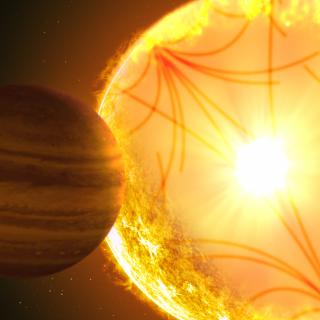Bibcode
García, R. D.; Cuevas, E.; García, O. E.; Cachorro, V. E.; Pallé, P. L.; Bustos, J. J.; Romero-Campos, P. M.; de Frutos, A. M.
Bibliographical reference
Atmospheric Measurement Techniques Discussions, Volume 7, Issue 4, 2014, pp.4191-4227
Advertised on:
4
2014
Citations
0
Refereed citations
0
Description
This paper presents the re-construction of the 80 year time series of
daily global shortwave downward radiation (SDR) at the subtropical
high-mountain Izaña Atmospheric Observatory (IZO, Spain). For
this purpose, we combine SDR estimates from sunshine duration (SD) data
using the Ångström-Prescott method over the 1933/1991 period,
and SDR observations directly performed by pyranometers between 1992 and
2013. Since SDR measurements have been used as a reference, a strict
quality control has been applied, when it was not possible data have
been re-calibrated by using the LibRadtran model. By comparing to high
quality SDR measurements, the precision and consistency over time of SDR
estimations from SD data have successfully been documented. We obtain a
overall root mean square error (RMSE) of 9.2% and an agreement between
the variances of SDR estimations and SDR measurements within 92%
(correlation coefficient of 0.96). Nonetheless, this agreement
significantly increases when the SDR estimation is done considering
different daily fractions of clear sky (FCS). In that case, RMSE is
reduced by half, up to about 4.5%, when considering percentages of FCS
> 40% (90% of days in the testing period). Furthermore, we prove that
the SDR estimations can monitor the SDR anomalies in consistency with
SDR measurements and, then, can be suitable for re-constructing solar
radiation time series. The re-constructed IZO global SDR time series
between 1933 and 2013 confirms discontinuities and periods of
increases/decreases of solar radiation at Earth's surface observed at a
global scale, such as the early brightening, dimming and brightening.
This fact supports the consistency of the IZO SDR time series presented
in this work, which may be a reference for solar radiation studies in
the subtropical North Atlantic region.
Related projects

Helio and Astero-Seismology and Exoplanets Search
The principal objectives of this project are: 1) to study the structure and dynamics of the solar interior, 2) to extend this study to other stars (either single or in binary systems), 3) to search for extrasolar planets using photometric methods (primarily by transits of their host stars) and their characterization with complementary radial
Savita
Mathur